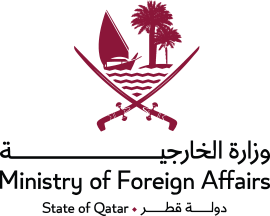Arab-Islamic Summit's Ministerial Committee on Gaza Embraces UK-France-Canada Statement Strip, West Bank

Doha, May 20, 2025
The Ministerial Committee assigned by the Joint Arab-Islamic Extraordinary Summit on Gaza has embraced a joint statement by the leaders of the United Kingdom, France, and Canada on the situation in Gaza and the West Bank that calls for an end to the war on Gaza and immediate access for humanitarian aid to the Gaza Strip.
In a statement on Tuesday, the Committee said it agrees with the three leaders' stance rejecting the military operations and the ongoing, comprehensive assault on the Palestinian civilian population in Gaza. It expressed deep concern about the continued Israeli blockade and the denial of humanitarian aid to the Strip and called for an immediate, sustained, and large-scale flow of life-saving humanitarian aid to all those in need in Gaza. The deliberate deprivation of vital supplies and the use of humanitarian aid as a weapon have pushed the population to the brink of famine, the statement read.
The Ministerial Committee affirmed that the Israeli blockade constitutes a violation of the UN Charter and resolutions, treaties, and international humanitarian law, contributes to the deliberate exacerbation of the humanitarian catastrophe in the Gaza Strip and poses a grave threat to the security and stability of the region.
Israel must allow and facilitate the unimpeded entry of humanitarian aid through all land routes and crossings, while utilizing air and sea delivery mechanisms to address the catastrophic conditions in Gaza, the statement read. There is no acceptable justification for starving the Palestinian people in Gaza and depriving them of humanitarian aid and their basic humanitarian needs.
In this context, the Committee expressed its grave concern about Israel's intention to allow what it described as limited aid delivery to the Gaza Strip and its creation of a new model for aid distribution, which contravenes humanitarian principles and international law and aims to strengthen control over life-saving supplies as part of a military strategy, as UN agencies and humanitarian partners have warned.
The Committee also stressed its rejection of the politicization or militarization of humanitarian aid and condemned Israel's plans for the forced displacement of the Palestinian people and the annexation of Palestinian land. It noted that the UN and its humanitarian partners have successfully delivered aid in accordance with humanitarian principles throughout the Gaza Strip since 2023, often at the cost of their lives, and supported the expansion of the response after the ceasefire in 2025. Despite Israeli obstacles and harsh conditions, these actors adhered to humanitarian principles and continued their work.
The Committee emphasized that the UN and its partners have the capacity and operational systems in place to respond immediately, ensuring the direct delivery of aid to the Palestinian people throughout Gaza, without leaving marginalized groups without support.
The Ministerial Committee reiterated its call on the international community to assume its moral and legal responsibilities and urgently intervene to pressure Israel, the occupying power, to immediately lift the blockade, cease its aggression and violations, and comply with UN resolutions, international law, and international humanitarian law.
In this context, the Committee also emphasized the need to ensure the urgent, sustainable, and unhindered entry and provision of humanitarian aid to the entire Gaza Strip by lifting all restrictions and immediately restoring all basic services, including electricity supplies, desalination plants, and health services.
The Committee called for an end to the Israeli war on Gaza, an immediate and permanent ceasefire, in accordance with UN resolutions, and the full implementation of the ceasefire agreement and the exchange of prisoners and detainees, which entered into force on January 19, 2020, with the mediation of the State of Qatar, the Arab Republic of Egypt, and the United States of America. This paves the way for early recovery and reconstruction of the Gaza Strip, the implementation of the Arab-Islamic Plan, and the convening of the Cairo ministerial conference on early reconstruction of Gaza as soon as circumstances permit. The Committee also expressed its deep concern about Israeli military incursions into the occupied West Bank and the accompanying illegal practices, including settlement construction, home demolitions, and settler violence, which undermine the rights of the Palestinian people, threaten the prospects for achieving a just and lasting peace, and deepen the roots of the conflict.
The Committee affirms that Israel, as an occupying power, is obligated to protect civilians and fully comply with international humanitarian law. It expresses its categorical rejection of any annexation attempts or illegal unilateral measures that seek to alter the legal and historical status quo at the holy sites in Jerusalem.
The Committee reaffirmed its full commitment to reaching a political solution to the conflict that guarantees the rights of the Palestinian people, including the independence of the State of Palestine, and the implementation of the two-state solution, ensuring coexistence between Palestine and Israel in peace and security, based on relevant UN resolutions, the Madrid Conference decisions, including the principle of land for peace, and the Arab Peace Initiative, and paving the way for achieving lasting peace and coexistence among all peoples of the region.
In this context, the Committee emphasized its commitment to actively participate in the high-level international conference to be held at the UN in June in New York, co-chaired by the Kingdom of Saudi Arabia and the French Republic, to advance these goals.

